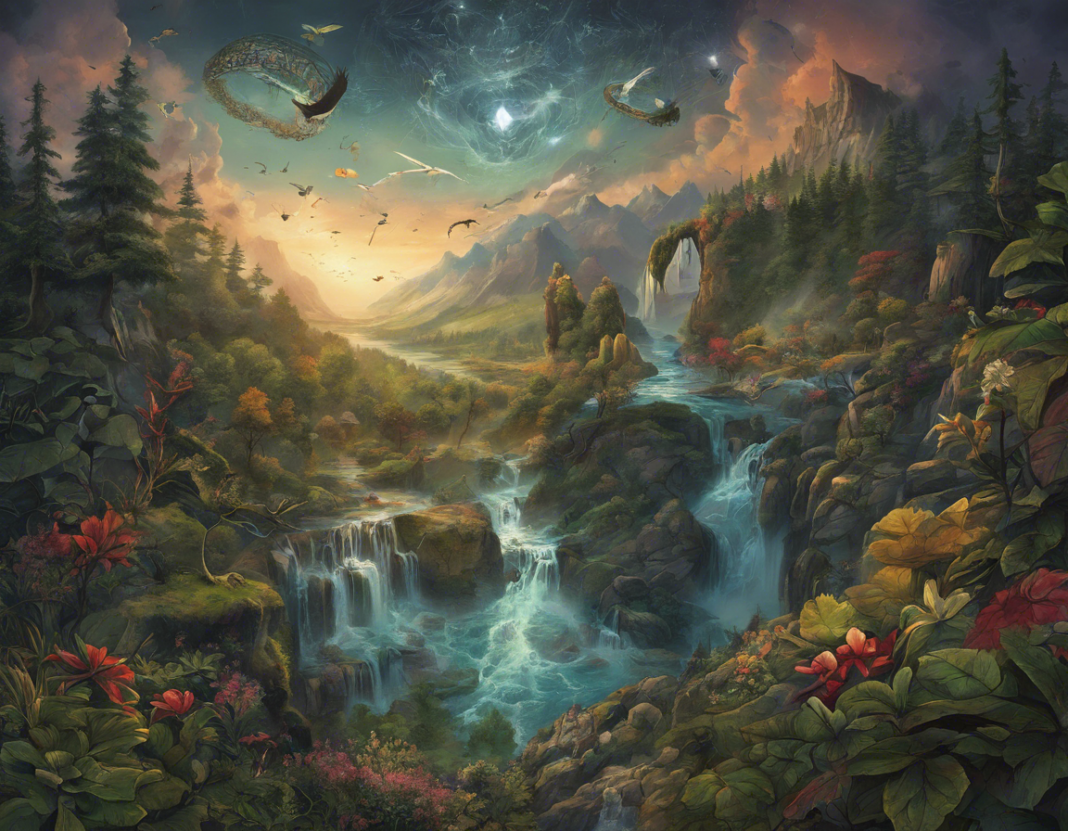From the serene depths of the ocean to the majestic heights of the mountains, nature’s wonders encompass a vast array of awe-inspiring landscapes and ecosystems that continue to captivate and inspire us. The remarkable diversity and beauty found in nature have been a source of fascination for humanity since time immemorial, sparking creativity, curiosity, and a deep connection to the world around us.
The Healing Power of Nature
In a fast-paced and technology-driven world, spending time in nature has become increasingly important for our mental, emotional, and physical well-being. Research has shown that being in natural surroundings can reduce stress, anxiety, and depression, while improving mood, cognitive function, and overall health. The concept of “ecotherapy” has gained traction in recent years, highlighting the myriad benefits of connecting with nature to promote healing and wellness.
Biodiversity and Ecosystems
One of the most remarkable aspects of nature is its incredible biodiversity. From the lush rainforests of the Amazon to the vast savannas of Africa, each ecosystem is a complex web of interdependent relationships that sustain life on Earth. Biodiversity plays a crucial role in maintaining ecosystem health, resilience, and functionality, supporting everything from clean air and water to food production and climate regulation.
The Marvels of Wildlife
The animal kingdom is a treasure trove of diverse and fascinating creatures that inhabit virtually every corner of the globe. From the stealthy jaguar prowling the jungle to the magnificent humpback whale breaching the surface of the ocean, wildlife showcases the incredible adaptability and beauty of living organisms. Conservation efforts are essential to protect endangered species and preserve the delicate balance of ecosystems around the world.
Exploring Natural Wonders
Whether it’s standing in awe of the towering redwoods in California, witnessing the breathtaking beauty of the Northern Lights in Norway, or snorkeling among vibrant coral reefs in the Great Barrier Reef, there are countless natural wonders to explore and experience. National parks, wildlife reserves, and marine sanctuaries offer opportunities for adventure and discovery, allowing us to connect with nature in meaningful and profound ways.
Sustainable Living and Conservation
As stewards of the planet, it is crucial that we prioritize sustainable living practices and environmental conservation efforts to protect and preserve nature’s wonders for future generations. Reducing our carbon footprint, supporting renewable energy sources, and advocating for wildlife protection are just a few ways we can make a positive impact on the health of the planet and its inhabitants.
Embracing the Beauty of Nature
In a world filled with distractions and demands, taking the time to slow down and appreciate the beauty of nature can be a powerful antidote to stress and discontent. Whether it’s a leisurely hike through the woods, a relaxing day at the beach, or simply gazing up at the starlit sky, connecting with nature allows us to cultivate gratitude, wonder, and a sense of belonging in the world.
In conclusion, nature’s wonders are a testament to the extraordinary diversity, resilience, and beauty of the world we inhabit. By immersing ourselves in the natural world, we gain a deeper appreciation for the interconnectedness of all living things and the importance of preserving and protecting the planet for future generations to enjoy. Let us continue to explore, admire, and respect the beauty of nature’s wonders, for they are truly a gift to be treasured.
Frequently Asked Questions (FAQs)
1. Why is nature important for human health and well-being?
Spending time in nature has been shown to reduce stress, anxiety, and depression, while improving mood, cognitive function, and overall health. Nature provides a sense of calm and tranquility that can benefit both the mind and body.
2. What is biodiversity and why is it important?
Biodiversity refers to the variety of life forms in a particular habitat or ecosystem. It is crucial for maintaining ecosystem health, resilience, and functionality, supporting essential services such as clean air, water, and food production.
3. How can individuals contribute to environmental conservation efforts?
Individuals can support conservation efforts through sustainable living practices, reducing their carbon footprint, advocating for wildlife protection, and supporting organizations that work to preserve natural habitats and wildlife species.
4. What are some famous natural wonders around the world that are worth exploring?
Famous natural wonders include the Grand Canyon in the United States, the Great Barrier Reef in Australia, the Amazon Rainforest in South America, Mount Everest in Nepal, and the Aurora Borealis in Norway.
5. What are some tips for immersing oneself in nature for those living in urban areas?
Even in urban areas, individuals can connect with nature by visiting local parks, botanical gardens, or nature reserves, taking walks in green spaces, gardening, or participating in outdoor activities such as hiking or birdwatching. Nature is all around us, and it’s important to seek out and appreciate it wherever we are.
